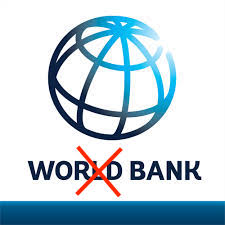FinanceWriter
Precision in verbal engineering
Precision in verbal engineering
 Blog
BlogKeep up to date with our most recent blog posts.
The World Bank's chief economist has been promoted sideways for trying to stop the turgidity and impenetrability of the bank's written output.

Paul Romer's "promotion" is comparable to that of a British cabinet minister, Edwina Currie, who was fired for stating that chicken eggs have salmonella. The fact that chicken eggs have salmonella is a fact, but her telling the public scrambled the egg industry lobby into action and Mrs. Currie was shown the exit (pun deliberately avoided).
But as sure as eggs are eggs, World Bank writing is turgid and torturous to read - something it shares with its sister IMF and its friends in the United Nations and other agencies and most "officialise" and "bureaucratese" in governments and corporations.
There is no basis for assuming that the progress of these admirable organisations in seeking world peace, global economic prosperity and international financial stability has been hindered in the writing in their papers and reports. However, it doesn't help them achieve their goals when their written output is read with dread; is placed in the "I'll read that later" pile or journalists, whose job it is to read, understand, digest and report to the world what the reports report, prefer to plagiarise the press release or the executive summary and to avoid delving into the report's detail.
International agencies are not alone in creating verbal walls that halt the migration of understanding. It is no unknown for corporate annual reports to be so opaque as to repel light or to possess such gems as to infinitely refract insight as to be wholly meaningless.
Words are solvents of ignorance, incomprehension and misunderstanding. The right composition, compound, or solution of words makes them invaluable productivity tools: understanding, insight, comprehension arising from clear and concise writing allows for fast and effective action, triggers innovative solutions and, poetically, but very practically, ensures everyone is singing from the same hymn sheet.
One of Mr. Roper's biggest beefs is what might be called the "pork barrel" effect. "Pork barrel" because it mimics the way US legislators tag-on funding of projects in their own electoral districts that have no relevance to the legislation under discussion. Roper objected to the high numbers of the word "and" in World Bank reports and demanded the conjunction should be fewer than 2.6% of the total words.
The high incidence of "ands" occurs because authors seeking to rise from the swamp of anonymity or to drag their lights from under bushels, tag- on their achievements to those in reports: "The World Bank build a $500 million dam in China and a $100 million road in Peru and used 1.2 million fewer paper clips thanks to the cost-cutting efforts of the World Bank's ever-vigilant Secretariat for the Conservation of Stationary"!
It is difficult to suppress ambition or self-aggrandisement when there are multiple contributors to a document. The problem is familiar to anyone compiling, say, an annual report for a multinational with diversified divisions competing for attention. It can feel brutal or politically risky for an employee excising someone's attempt to gain recognition or acclaim.
That is why Mr. Roper could have done worse that to ask FinanceWriter, as independent, professional writers, to give his World Bank reports the clarity, brevity and consistency they need. Sometimes an external consultancy, responding with neither to fear nor favour, can deliver on the client's brief by distinguishing the dead wood from the trees.